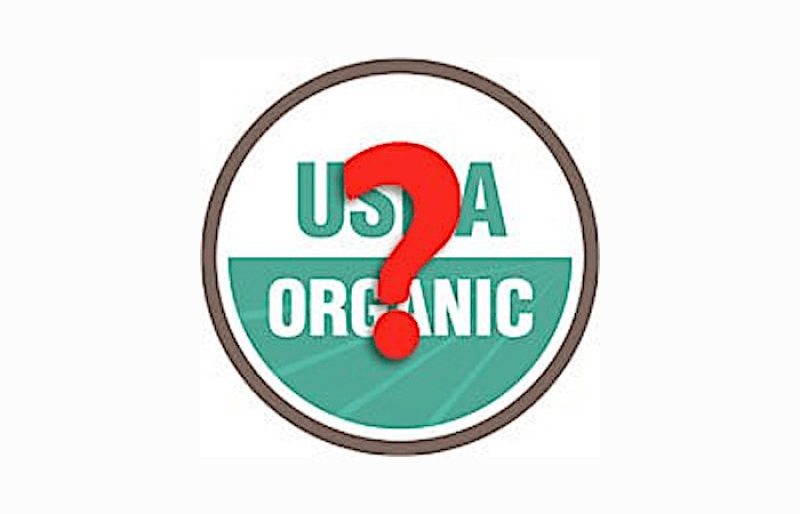An organic chicken can cost more than twice a conventional one. For some shoppers, that upcharge is worth it—the circular green and white “USDA Organic” label guarantees that the meat comes from an animal raised on feed that’s grown without pesticides or chemical fertilizers.
Or does it? Organic meat producers operate on impossibly tight margins, so many buy less expensive imported grain to feed their animals …. Lax federal control means that exporters can hire organic certifiers that will help them boost profits by looking the other way. The result is an influx of cheap, fraudulent products that are driving down prices and hurting American organic farmers who play by the rules.
…
We import 70 percent of our organic soybeans and 40 percent of our organic corn, which are fed to organic livestock. The Cornucopia Institute, an industry watchdog group, suspects that the USDA, which is supposed to regulate but also promote US agriculture, is not strictly monitoring these imports—because if it did, it could undercut the entire organic food chain.
“If the feed isn’t authentically organic, neither is the livestock, and neither is the meat on the table,” Anne Ross, a farm policy analyst with Cornucopia, writes in an email.































